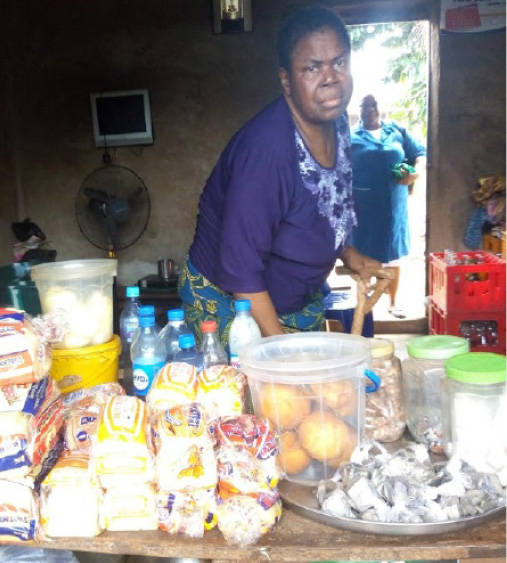How Buhari’s CCT helps rural poor starts agribusinesses
Mrs.Chinyere Mbanugo, 57, from Ifite-dunu ward one in Odunukofia LGA was in her small shop when Daily Trust visited her. Chinyere is battling with a number of life-threatening conditions and has no child to take care of her. She is one of the beneficiaries of the Federal Government’s Conditional Cash Transfer (CCT) programmeas- one of […]


Mrs.Chinyere Mbanugo, 57, from Ifite-dunu ward one in Odunukofia LGA was in her small shop when Daily Trust visited her. Chinyere is battling with a number of life-threatening conditions and has no child to take care of her.
She is one of the beneficiaries of the Federal Government’s Conditional Cash Transfer (CCT) programmeas- one of Buhari’s Social Investment Programmes (SIP) that gives hope to the extremely poor and vulnerable in the society.
Mrs Mbanugo has so far received N10, 000 three times from January 2018 to June 2018. This money helps her not only to buy needed drugs, but also start small agro business selling vegetables, fruits and other processed food.
For her, this government’s conditional Cash Transfer initiative has put life in an already dying soul and it was easy to understand why she thanks and wishes President Buhari well.
Dunukofia and Awka LGAs are two of the six LGAs in Anambra State that benefited from the Buhari’s Social Investment programme.
The programme implementation which started in 2016 used Social Security Index selection criteria across the 36 states and the FCT to locate beneficiaries who are mainly very poor and vulnerable rural farmers.
Recently, The Partnership to Engage, Reform and Learn (PERL), which supports how governments organize their core business of making, implementing, tracking and accounting for policies, and the National Cash Transfer Office (NCTO) went on monitory mission to Dunukofia LGA, which has 994 beneficiaries across communities like Ifite Dunu, Ukwulu, &Umudioka and Awka North LGA that has a total of 299 beneficiaries across communities like Isuaniocha, Umudunu, Ifite-Isu and Otoko.
The mission was to help equip the beneficiary with Grievance Redress Mechanism (GRM), which serves as a feedback medium put in place by the NCTO to support the successful implementation of the programme.
Another beneficiary, Paul Umedi, who is an elderly farmer from Ifite-Dunu- the same area with Mrs Chinyere, has also received the same amount three times and his life has not remained the same since then.
Though old, he still does farming to support himself.
At Ukwulu Ward, Eunice Emereani, who has received the same amount three times describes the programme as noble and something that has changed her life.
As a smallholder farmer and a widow, her life and those of her dependants got better. The money helps strengthen her capacity to do more farming and other to support the family.
In Isu-aniocha, Awka North Daily Trust interacted with seven beneficiaries whose lives have been touched by the programme.
Mrs E. Amaduamaka from Isu-Aniocha community, a subsistent farmer was living in frustration. Her only surviving son, Ikechukwu suffers mental ailment.
Although, the son appears to need just little help to bounce back to life, she has been abandoned by the husband who is said to live in the north.
As a poor caregiver, she watches with tears always, her only surviving son stays without any help, and she doesn’t want to be reminded of her husband who has abandoned them in a house that is not even theirs and has to return home to her people.
With the CCT assistance combine with farming, they keep their hope alive waiting for better days.
For many of the beneficiaries who spoke with Daily Trust, life has not been the same again-many of them are struggling to be relevant and remain hopeful for a better future.
Although most of the beneficiaries are above 50 as noted, some observers want government to include young widows with children to enable them stay relevant by engaging in businesses that will help in training their children.
One of such observer, Ms Bridget Obi, a former Commissioner in the state and founder of Children of Farmers’ Club, stressed that such category of people needs government assistance.
She also want programme to group the beneficiaries in cooperatives and mentor them through small scale business initiative as it will enable them to sustain themselves when the programme ends.
